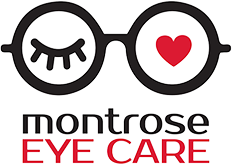
Glaucoma is often referred to as the “silent thief of sight” because it can gradually damage your vision without noticeable symptoms in its early stages. For many people, glaucoma develops slowly, affecting their eyesight in ways that can make day-to-day tasks increasingly difficult. Understanding how glaucoma impacts your life can help protect your long-term vision.
What Is Glaucoma?
Glaucoma is an eye condition caused by damage to the optic nerve, usually due to increased pressure inside the eye. Over time, this damage can lead to permanent vision loss if left untreated. There are several types of glaucoma, but open-angle glaucoma is the most common. Since the disease often progresses without pain or obvious symptoms, many people don’t realize they have it until vision loss occurs.
How Does Glaucoma Affect Your Vision?
Glaucoma typically affects your peripheral vision first, making it harder to see objects out of the corner of your eye. As the disease advances, central vision can also be impacted. This progression can make it challenging to recognize faces, read, or drive safely. Because vision loss from glaucoma is permanent, early detection is critical for preserving as much vision as possible.
The Impact on Daily Life
Living with glaucoma can significantly affect your ability to perform everyday activities, including:
- Driving: Reduced peripheral vision makes it difficult to notice pedestrians, other cars, or hazards on the road.
- Reading and Screen Use: Glaucoma can cause blurry spots or missing areas in your vision, making it hard to focus on text or digital screens.
- Mobility and Safety: Difficulty seeing obstacles to the side increases the risk of tripping or bumping into objects.
- Work and Hobbies: Tasks that require detailed vision, like sewing, using a computer, or even cooking, can become frustrating.
These challenges can impact independence and quality of life, especially as the disease progresses.
The Importance of Routine Eye Exams
Because glaucoma often develops without early warning signs, regular comprehensive eye exams are the best way to detect it before significant vision loss occurs. At Montrose Eye Care, we use advanced diagnostic technology to measure eye pressure, check your optic nerve, and monitor your vision for any signs of glaucoma. When caught early, treatment options such as prescription eye drops, laser therapy, or surgery can help slow the progression of the disease and preserve your vision.
Take a Proactive Step Toward Safeguarding Your Vision
Glaucoma can have a profound impact on daily life, from driving and working to enjoying your favorite hobbies. While the condition is serious, early detection and treatment can make all the difference in maintaining your independence and protecting your sight.
Schedule your comprehensive eye exam with Montrose Eye Care to stay ahead of glaucoma before it affects your vision and quality of life. Visit our office in Houston, Texas, or call (713) 300-1477 to book an appointment today.







